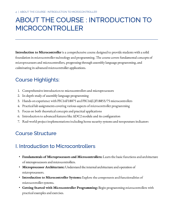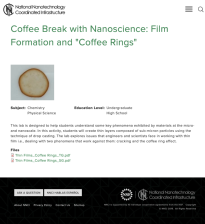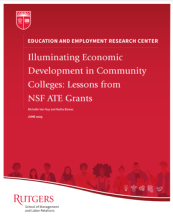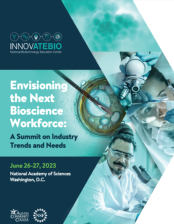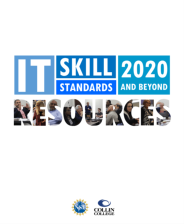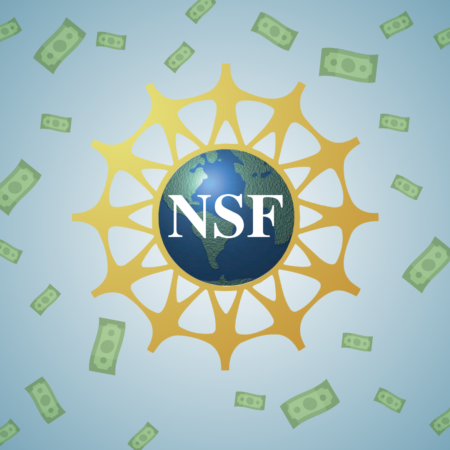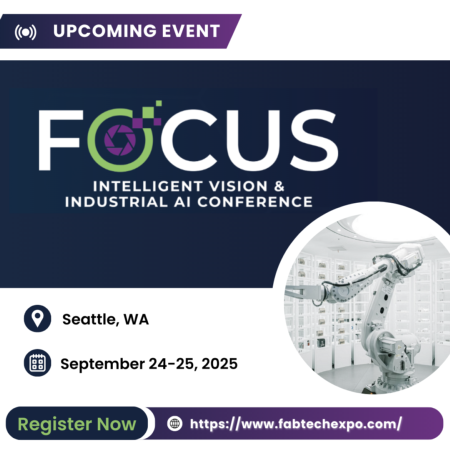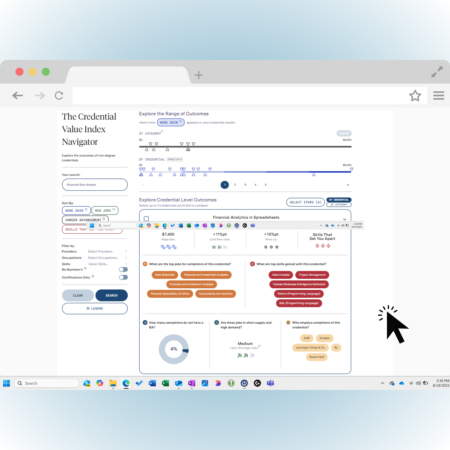ATE is Advanced Technological Education. With an emphasis on two-year colleges, the National Science Foundation's ATE program focuses on the education of technicians for the high-technology fields that drive our nation's economy.
NERC Deep Dive
Meeting
September 22 Online
|
(View More)
Using Drones in Energy Courses
Webinar
September 22 Online
CREATE Faculty Coffee Hours are a time to get together (virtually) and discuss topics of interest for Energy Faculty each month. Please come to these sessions prepared to share your experiences and ideas on the specified topic (what has worked or maybe what hasn’t worked). If you don’t have experiences or ideas on the specific topic, please come and learn from your colleagues. This will be an opportunity to share and brainstorm ideas together.
(View More)
BioMADE Webinar | Downstream Processing – A Focus on Spray Drying and Fluid Bed Processing
Webinar
September 23 Online
AVEKA Group was founded in 1994 as a spin off from 3M as a particle processing company. The company has focused on developing and manufacturing particulate materials with novel and value-added attributes for the personal care, food, automotive, and industrial chemical markets. An overview of AVEKA and its approach to collaborative contract development and manufacturing will be presented by AVEKA’s CEO, Willie Hendrickson. This close co-development of new processes and novel materials with customers will focus on the use of down stream drying processing for biological materials and be discussed with respect to the potential to fast-track economic pathways to production. This will include examples where scale-up development time (transition through the development valley of death) was dramatically shortened, and production costs were minimized. Fundamental explanation of both spray drying and fluid bed drying will also be presented. Examples will include spray drying of fermented materials, neutralized short chain fatty acids, and cellulose fibers; extraction and spray drying of biological value-added components; and fluid bed drying and agglomeration of enzymes, yeasts, and proteins.
(View More)
FOCUS: Intelligent Vision & Industrial AI Conference
Conference
September 24 Seattle, WA
Shape the Future with Vision and AI. Discover the latest in machine vision, AI-driven automation, and transformative tech reshaping industries — connect, learn, and innovate with the best in the field.
Join industry leaders and tech innovators to explore the latest in machine vision, computer vision, and AI-driven automation. See real-world AI applications, cutting-edge technologies, and expert insights shaping industries like manufacturing, aerospace, medical devices, and logistics.
(View More)
2025 NSF ATE Funding & Mentor-Connect Opportunities
Webinar
September 24 ,
Join Mentor-Connect Principal Investigator Pamela Silvers and National Science Foundation program officers to learn valuable information about NSF’s Advanced Technological Education program funding and Mentor-Connect’s mentoring for teams developing ATE proposals from 3 to 4:30 p.m. (EST) on Wednesday, September 24. The webinar on Zoom is free.
The session will begin with an overview of the ATE program, including available grant funding tracks, deadlines, key funding variables, and expert tips for developing a competitive proposal. In the second half, explore Mentor-Connect’s system of support designed specifically for two-year college faculty and institutions new to ATE funding. Learn about eligibility criteria, how to get started, and the next steps to connect with experienced mentors and resources that can guide you through the proposal process.
(View More)
Community of Practice - Knowledge and Skills for Applied AI degree
Meeting
September 26 Online
Join for this upcoming Community of Practice session as presenters discuss the first-ever national Knowledge and Skills framework for an Associate degree in Applied AI. Developed with direct input from our Business Industry Leadership Team, this framework outlines the core competencies needed to prepare students for AI careers with a 2-year associate’s degree.
Learn how to apply the KSA framework at your institution, align your curriculum with workforce needs, and collaborate with peers leading AI program development across the country.
(View More)
CCPI-Cast: Transforming Teaching and Learning with AI
Webinar
September 26 Online
Join the upcoming NSF-ATE CCPI WEBCAST titled A Live Demonstration for Faculty, Staff, and Administrators
(View More)
Intro to Generative AI and Microsoft Copilot for Faculty and Staff
Webinar
September 26 Online
You are invited to participate in a custom series of instructor-led webinars designed to provide community college faculty and staff with a practical introduction to Generative AI and Microsoft Copilot. The two training sessions cover effective prompting, ethical AI use, and real-world applications for educators and administrators. Through interactive discussions and hands-on examples, participants will learn how to integrate AI tools into their workflows to enhance productivity and decision-making.
The first training, Introduction to Generative AI and Microsoft Copilot for Faculty and Staff, provides an essential overview of Generative AI and Microsoft Copilot. The follow-up trainings, focused on practical strategies for incorporating AI-driven tools into daily responsibilities, are divided into focused sessions for Faculty and for Staff.
Sessions:
- Introduction to Generative AI and Microsoft Copilot for Faculty and Staff (Sept 26, 1 to 2 PM EST)
- Generative AI and Microsoft Copilot for Faculty (Sept 30, 1 to 2 PM EST)
- Generative AI and Microsoft Copilot for Staff (Sept 30, 3 to 4 PM EST)
(View More)
CS Bootcamp - Workshop
Workshop
October 1 Detroit, MI
This two-day workshop will equip educators with a fundamental computer science curriculum, connections to educational robotics, and lay the groundwork to integrate computer science into core curriculum.
The workshop will include an introduction to Code.org content presented by Oakland Schools and the application of a microbit and robotic vehicle presented by the Square One Education Network.
(View More)
Communicating What Matters: Understanding and Sharing ATE Project Outcomes and Impact
Webinar
October 1 Online
When it comes to telling the story of your ATE project, simply sharing results is not enough. This webinar is designed to help project teams and evaluators understand the difference between outcomes and impact, recognize who needs to hear your story, and apply strategies to share it effectively. This webinar will explore what outcomes and impact look like in the ATE context, how to identify key audiences, and how to use clear, engaging communication to make your message meaningful. Join to gain practical tools and confidence to share your project’s impact in ways that matter.
(View More)
2025 AISES National Conference
Conference
October 2 Minneapolis, MN
The Annual AISES National Conference is a unique, three-day event focusing on educational, professional, and workforce development for Indigenous peoples of North America and the Pacific Islands in science, technology, engineering, and math (STEM) studies and careers.
The AISES National Conference isn’t just an event—it’s a transformative experience that connects, empowers, and inspires Indigenous People in STEM.
The conference includes:
- Largest college and career fair in Indian Country
- Research competitions
- Multi-sessions and multi-tracks in STEM, business, research and educator topics
- Impressive keynote speakers
- Opening and closing ceremonies including entertainment
- Student awards ceremony
- Networking suites
- Talking Circles
- Traditional Powwow and Indigenous Artisan Marketplace
- STEM Activity Day
- hackAISES (hackathon)
(View More)
AMTEC Institute for Industry 4.0 Innovation (AI3)
Workshop
October 7 Owensboro, KY
Join AMTEC for a 2 day training with hands-on programs featuring nationally recognized trainers and equipment focusing on Industry 4.0 skills. This training is for secondary and post-secondary instructors who are preparing students to enter careers in advanced manufacturing.
Sessions Include:
- Industry 4.0 concepts and training
- Competency based education
- Virtual reality
- Using these tools in the classroom
- Funding resources
You will also gain access to virtual monthly community-of-practice sessions featuring industry partners, peers, and best practices. Travel assistance and stipends will be available to participants who complete program requirements. Please contact us at 270-686-4410 or email [email protected] for more information or to register.
(View More)
Women Who Code- Summit @ TechFutures
Summit
October 7 New York, NY
A curated experience designed for engineers, technical leaders, and professionals at the intersection of tech and business.
Expect deep-dive workshops, hands-on skill-building, and leadership content. All are tailored to the Women Who Code community. Hosted within TechFutures this October, the Summit offers a focused environment to level up your career. For those seeking an even more immersive experience, our Leadership Program provides advanced content designed to accelerate your growth as a senior technical leader.
Give yourself unparalleled access to expert knowledge and in-depth explorations of cutting-edge technologies. Participate in top sessions or hands-on workshops to enhance skills and foster continuous learning.
(View More)
ATE Projects and Centers
Advanced Manufacturing Technologies topics include:
- Additive manufacturing
- Automotive manufacturing
- General manufacturing
Agricultural and Environmental Technologies topics include:
- Agriculture and aquaculture
- Environmental technologies
- Natural resources
- Nuclear power
- Solar energy
- Wind power
Bio and Chemical Technologies topics include:
- Biotechnology
- Chemical and process technologies
Engineering Technologies topics include:
- Electronics and controls
- General engineering
- Marine technologies
- Materials technologies
- Optics
- Space technologies
General Advanced Technological Education topics include:
- Evaluation
- Learning research
- Recruitment
- Teacher preparation
Information and Security Technologies topics include:
- Geospatial technologies
- Information and communications technologies
- Logistics
- Security, information assurance, and forensics
Micro and Nanotechnologies topics include:
- MEMS
- Microsystems
- Semiconductors
This 130-page textbook, created for the ELCT 251: Introduction to Microprocessors and Microcontrollers course taught at Lake Washington Institute of Technology, provides students with a foundation in microcontroller technology and programming. Concepts covered include fundamental concepts of microprocessors and microcontrollers, assembly language programming, and microcontroller applications. Included in the textbook are a number of assignments and labs with instructions and student questions. The textbook consists of the following parts:
- Introduction to Microcontrollers
- Introduction to Assembly Language
- Assembly Language Programming - I
- Assembly Language Programming - II
- Assembly Programming - III
Upon completing this course students should be able to do the following:
- Understand and program microcontrollers
- Develop and implement assembly language programs
- Design and troubleshoot microcontroller-based systems
- Communicate effectively within a technical environment
(View More)
This lab, presented by the National Nanotechnology Coordinated Infrastructure, will help students begin to understand nanotechnology, specifically behaviors of materials at the nanoscale. Students will "explore two factors affecting the thin film deposition, film cracking and the formation of 'coffee rings.'" A teacher's preparatory guide is included, featuring needed materials, detailed procedural instructions, and additional resources, as well as a copy of the student worksheet with answers. The student worksheet is available as well.
(View More)
This 34-page article, published by Rutgers School of Management and Labor Relations, presents the results from interviews with National Science Foundation (NSF) Advanced Technological Education (ATE) grantees and provides "insights into how some community college technician programs have approached education and training in ways that were intentionally linked to regional economic development." Highlighted throughout the article are specific, detailed examples of economic development activities conducted by ATE grantees, such strategies for working with local businesses or attracting employers to the grantee's region. Also included are "recommendations for current and future ATE grantees interested in promoting economic development." The article consists of the following parts:
- Background
- Methods
- Focus on Economic Development
- Industry Alignment for Education and Training
- Business Support and Regional Engagement
- Collaborations
- Conclusions
(View More)
This 80-page report provides an extensive overview of the Envisioning the Next Bioscience Workforce summit held by InnovATEBIO on the 26th and 27th of June, 2023. The summit gathered "attendees from education, industry, workforce development and government gathered for two days to learn about emerging trends and technologies in the biosciences and to convene within 'state teams' to develop action plans for strengthening the bioscience workforce ecosystem in their state." The report begins with a summary of the summit and a discussion of its conclusions and strategies developed for building statewide bioscience workforce ecosystems. Then, the report goes into the findings of each panel/mini-panel discussion and covers the "state teams" model for collaboration in promoting the biotechnology workforce. The report includes the following sections:
- Executive Summary
- Industry/Education Presentations and Panels
- Bioscience Workforce Ecosystem Panels
- Building the Bioscience Workforce of...
(View More)
This 172-page resource was developed as a reference guide for the IT Skill Standards 2020 and Beyond project grant, explaining in step-by-step detail how to collaborate with employers to develop future-facing technical skill standards and then use that work to align curriculum to workforce needs. This guide also provides a hard copy of the final version "products" the grant created (KSA+Ts - knowledge, skills, abilities, and tasks, key performance indicators, employability skills, student learning outcomes, and degree expectations).
A companion report on the impacts and outcomes of the ITSS project is available to view separately.
(View More)
| Active ATE Centers | 19 |
| Active ATE Projects | 298 |
| ATE Resources | 6,923 |
| New Projects/Centers | 101 |
| New Resources | 40 |
ATE Resources by Subject Area
ATE Events by Subject Area
New Issue: Community College Journal
The August/September issue of the American Association of Community Colleges’ (AACC) Community College Journal is now available online and in print through subscription. A featured publication by AACC, this journal provides contemporary information, insights, strategies, and connections for those in academia, industry, government, and workforce development.
The latest issue highlights:
- AACC's announcement of its next president and CEO, DeRionne Pollard.
- Trends in the green building industry, including within higher education.
- The importance of organizational culture, culture-building, and leadership in quickly evolving landscapes.
- Ways to prevent burnout and initiative fatigue in the face of rapid change.
AACC's August/September publication of the Community College Journal can be accessed online here, and archived issues can be viewed in AACC’s library.
(View More)
Supplemental Funding Opportunity: NSF DCL Supports AI Initiatives for High School Students
In a recent Dear Colleague Letter (DCL), the National Science Foundation (NSF) has announced an invitation for supplemental funding requests from current Experiential Learning for Emerging and Novel Technologies (ExLENT) and Advanced Technological Education (ATE) grantees to test, integrate, or build upon AI-based career learning opportunities and workforce preparation efforts for high school students.
To be eligible for additional funding, proposals must demonstrate partnership among community colleges, high schools, and industry collaborators. Supported activities include curriculum development, micro-internships, hands-on training, certification programs, and dual enrollment opportunities.
To determine eligibility prior to official proposal submission, contact the “Expanding AI Career and Skilled Technical Workforce Opportunities in Support of High School Students” program leads by providing a two-page summary of the planned funding request, including its budget, to:
- [email protected] for current ExLENT awardees
- [email protected] for current ATE awardees
If approved to submit, supplemental requests are due by December 15th, 2025.
NSF ATE and ExLENT program officers...
(View More)
Upcoming Event: FOCUS - Intelligent Vision & Industrial AI Conference
Hosted by the Association for Advancing Automation (A3), the 2025 FOCUS: Intelligent Vision & Industrial AI Conference will be held on September 24-25, 2025, at the Sheraton Grand Seattle in Seattle, Washington.
Attendees will have the opportunity to explore cutting-edge advancements in AI-driven automation, robotics, machine vision, and transformative technology, with applications for fields including manufacturing, aerospace engineering, and information technology. Industry leaders will share expert insights on the latest AI trends and innovations, helping attendees learn, grow, and stay at the forefront of advancements.
The FOCUS conference will offer interactive exhibits for hands-on exploration of AI-based technologies, various networking opportunities to foster connection, and a variety of panel and keynote speaker presentations.
To learn more or to register for the event, visit the 2025 FOCUS conference's website.
(View More)
New Research: Mixed Results on the Impact of Non-degree Credentials
A recent report from the American Enterprise Institute and the Burning Glass Institute analyzes non-degree credentials for the potential to lead to increased earnings, position advancements, or career changes.
In the report, the American Enterprise Institute notes varied results surrounding non-degree credentials, with only 12% offering the opportunity for significant salary gains. Almost one-fifth of the learners studied saw no increases in wage after program completion, and few experienced career advancements. On the other hand, the top non-degree credentials were associated with an approximately $5,000 salary bump and a 17 times chance of promotion one year later. Even within specific fields, reported outcomes were mixed, including the professions of data science, accounting, and marketing.
To make report findings more accessible, the American Enterprise Institute and the Burning Glass Institute have developed an interactive dashboard with detailed information on the thousands of non-degree credentials studied.
Read the full report on non-degree credentials and career outcomes here.
(View More)

 List
List